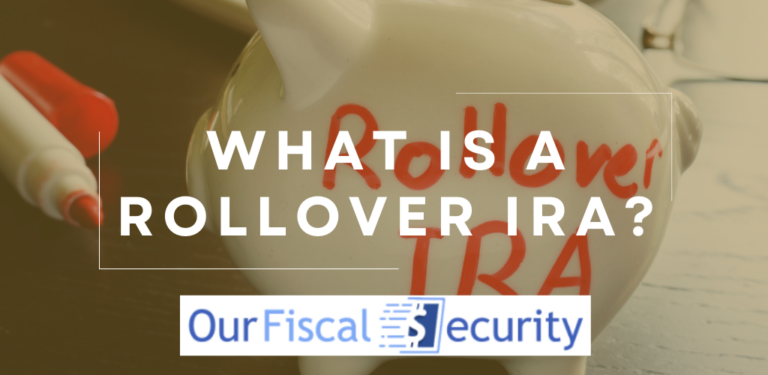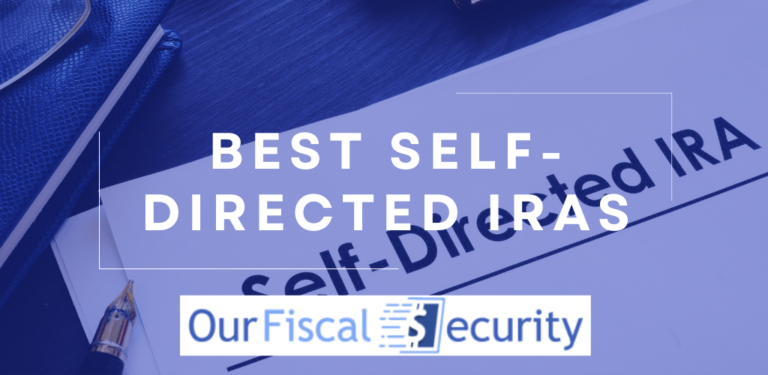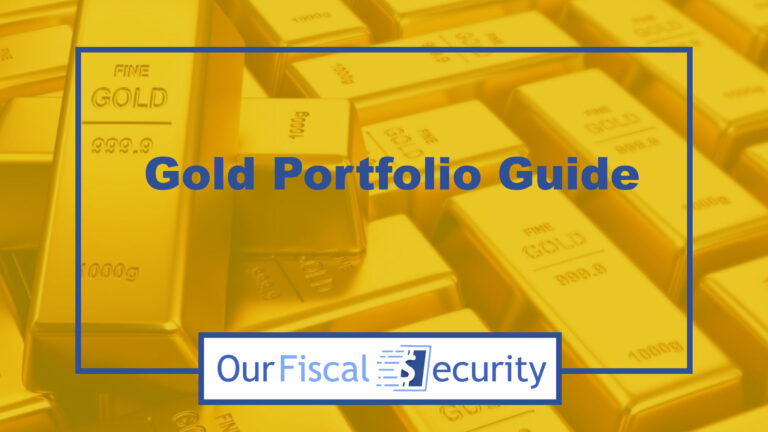Gold IRA Tax Rules – Everything You Should Know
Gold IRA investments are something we often hear about. However, it’s hard to understand what they involve. Most people claim that they’re great for retirement savings, and others believe that physical gold and IRAs have their limits.
It’s important to understand gold IRA tax rules and the potential pitfalls of investing in them. We’ll discuss this today and help you discover the answers you seek!
Understanding a Gold IRA
A gold IRA is just a specialty individual retirement account (IRA). It helps investors hold physical gold as a retirement investment.
Investors with gold IRAs may hold precious metals, including coins and bullion. However, many people aren’t aware that precious metals-related securities are also available to have in the investment portfolio.
Generally, gold IRAs are held separately from your traditional IRA. However, the rules for distributions and contributions are the same. Likewise, it’s a self-directed IRA, which means you will use a custodian or a broker-dealer to open one.
Concept of a Gold IRA
The ERISA (Employee Retirement Income Security Act) introduced traditional IRAs in 1974. However, precious metals IRA accounts weren’t available until 1997.
Generally, the concept behind the gold IRA was that some investors wanted more options. Instead of a traditional or Roth IRA, they wanted to invest in gold and other precious metals. The government saw a need and allowed gold investments through gold IRAs. With this history fact, understanding a Gold IRA is crucial prior to diving deeper into gold IRA taxes.
IRA Taxation Essentials
You have two main types of taxing policies for a precious metals IRA: The traditional IRA and the Roth IRA. Their taxation policies differ based on the account you choose.
Here are the taxation policies for Roth IRAs:
- Annual Contribution Limits – You can put in $6,500 (2023) and can add $1,000 more if you’re 50 or over.
- Early Withdrawals – Contributions made to Roth IRAs can be taken whenever you want. However, gains distributed before 59.5 years old might be subject to income taxes and a 10 percent penalty unless you have an exception. Typically, the earnings for a Roth IRA investment are subjected to a holding period of 5 years.
- Tax Benefits – Investors with a Roth IRA don’t receive immediate tax benefits on contributions because it uses after-tax dollars. However, the distributions are tax-free.
- Required Minimum Distributions – Roth IRA investors have no RMDs (required minimum distributions) to deal with.
Conversely, this is the taxation process for traditional IRAs:
- Annual Contribution Limits – You can put in $6,500 (2023) and can add $1,000 more if you’re 50 or over (same as for Roth gold IRAs).
- Early Withdrawals – If you qualify for an exception, such as the need to build or purchase a property or have a permanent disability, you can take distributions before the distribution age of 59.5. Otherwise, you are taxed on the funds and may face a 10 percent withdrawal penalty. This is true for investment gains and contributions.
- Tax Benefits – Contributions made to a traditional IRA account will lower the taxable income for the year they’re made. However, retirement distributions are taxed at the ordinary income tax rate.
- Required Minimum Distributions – Investors with a traditional IRA are required to make the minimum distributions once they hit a specific age. Previously, this was 72, but it was changed in 2023 to 73 and is set to be increased to 75 come 2033.
There are two types of gold IRAs: A traditional or Roth gold IRA. You must understand the tax implications of each to make the right choice for your financial limits and investment goals.
Gold IRA Contributions
Contribution limits are another part of gold IRA taxation. Though you might think you can contribute freely because it’s for your personal savings or retirement account, the IRS has rules in place. Ultimately, the IRS will determine contribution limits based on which gold IRA account you own.
For example, an investor could contribute a maximum of $6,000 to their Roth IRA in 2022. That amount raised to $6,500 for 2023. Investors who are 50 or older can use catch-up contributions. This gives them an extra $1,000 to put in their accounts.
One unique feature of the Roth IRA is that there are no age restrictions for contributions. You can continue contributing beyond 70.5 and 72 years old. However, if you choose a traditional IRA, you must be 50 at the end of the year before contributing, as long as you/spouse have taxable income.
Likewise, you should be aware of the contribution limitations for Roth and traditional IRAs. The 2023 IRS guidelines indicate that you may contribute to both of those accounts in one year. However, the combined contribution cannot be more than $6,500 (under 50) or $7,500 (over 50).
Earnings-based Contributions
Compared to the traditional IRAs, there are many income limitations for Roth IRAs. Depending on your yearly salary, your contribution limit could be canceled or reduced.
Likewise, the IRS lets you contribute to the IRA up to your annual earned income or the cap, whichever is less of the two. The cap is the contribution limit on an IRA account, while acceptable earned income includes W-2 wages, income generated at a farm or through self-employment, and alimony.
While the cap is $6,000, you may only contribute $5,000 to your Roth IRA if the total income from those sources is $5,000. If your income is over $6,001, you may contribute up to the limit ($6,000) because your earnings actually surpassed the maximum contribution.

Gold IRA Distributions
There are also limitations for distributions from the retirement account. The IRS claims that you must start taking distributions the year after turning 72 (by April 1) and by December 31 of all subsequent years.
Taxes apply if you withdraw funds or precious metals after liquidating certain amounts of them. This only happens if you wait until you hit retirement age and meet the eligibility requirements for gold IRA distributions.
However, there might be times when you take early withdrawals from the gold IRA. Ultimately, the IRS prohibits this before 59.5, so you will likely have to pay taxes and incur the 10 percent tax penalty.
Navigating Gold IRA Rules
Knowing that the rules for Roth and traditional gold IRAs are similar to regular IRAs is helpful. However, you must understand that some regulations are different. Here are the things to note:
Employing a Self-Directed IRA
If you wish to open a gold IRA, you must understand that it is a self-directed IRA that will hold four different acceptable precious metals. Typically, if an IRA is self-directed, it means the custodian will keep the assets in your account. You’ll likely work with brokers/dealers who will buy, store, and sell your physical gold bars and coins.
Selecting IRA-Qualified Gold
To be compliant with the gold IRA tax rules, you have to purchase bars and coins that the IRS approves. Otherwise, you’re subjected to an excise tax, and the IRA might not qualify as such.
In most cases, your precious metal should be 99.9 percent pure, but there are some exceptions for particular coins. The only types of coins allowed are proofs and bullion. You cannot collect rare coins for use in the IRA.
Here are a few gold coins you can have:
- Gold bars/rounds produced by a NYMEX/COMEX-approved refinery or national government mint that meets the minimum fineness requirements
- Chinese Gold Panda coins
- Canadian Gold Maple Leaf Coins
- American Gold Eagle (bullion/proof coins)
- American Gold Buffalo (no proofs and must be uncirculated coins)
Other precious metals can include palladium, platinum, and silver. All of them have minimum fineness levels and rules for purchasing.
Gold Purchase via a Custodian
You must use an approved custodian to help you set up your account and handle your investments based on your requirements and IRS rules. In most cases, the custodian will have a list of preferred broker-dealers where you can buy the gold. Alternatively, you could tell them what you want, and they will purchase it for you.
Gold Storage in an IRS-Approved Facility
Storage is also a consideration for those with a gold IRA. You must store the physical gold at an IRS-approved depository or a bank. Likewise, you may choose another approved third party.
Gold IRA Contribution Limits
The gold IRA contribution limits are similar to those for a traditional and Roth IRA. Therefore, you can put in $6,500 (2023) or $7,500 if you’re 50 or older.
Gold Holding Period in an IRA
There is no holding period for a traditional gold IRA. However, if you choose a Roth gold IRA, you will have to wait five years before taking withdrawals.
Tax Implications of a Gold IRA
People often feel that a gold IRA is an excellent retirement investment because of its attractive tax benefits. In fact, they bring more than the ownership of a physical asset during retirement. However, it’s important to understand the gold IRA tax rules and the implications of owning one.
Capital Gains Considerations
With a gold IRA, your capital gains taxes can be seen as a tax benefit. If you cash out the investment, the IRS considers the gold to be a collectible. Therefore, you’ll see a 28 percent capital gains tax rate. However, keeping the gold in the IRA means the profits get taxed as ordinary income at the marginal tax rate that applies to you. Stored in the IRA, the differential might mean cheaper taxes!
Tax-Deferred Investment Growth
The gold and other precious metals in your gold IRA can grow without being subjected to capital gains and annual income taxes. Therefore, when the gold holdings increase in value, you don’t pay taxes on them until you withdraw something from the IRA. In a sense, you’re not losing some of your returns each year, which can help with growth.
Potential Inheritance Advantages
Inheritance benefits are also something to consider. Inheriting an IRA is often complicated, and there are different rules for each type, such as the deceased person’s child, distant relative, or spouse.
Recognized Designated Beneficiary
You are a recognized designated beneficiary if you’re:
- Only 10 years younger than the original owner
- A minor
- Disabled
- Chronically ill
- A surviving spouse
If you’re one of the above, you may:
- Transfer assets to an inherited IRA with your name, choosing when to take RMDs over the deceased account holder’s life expectancy or your own.
- Transfer assets to an inherited IRA with your name, specifying a 10-year schedule for distribution. The account should be liquidated by December 31 after those 10 years.
Designated Beneficiary Regulations
If you’re not in one of the categories above, you are called a designated beneficiary. There are different rules and restrictions. You’d have through December 31 of the following year after the person’s death to fully withdraw the account.
Prohibited Transactions in a Gold IRA
Self-dealing is a major pitfall that you should avoid as a gold IRA owner. Any transactions directly benefitting the IRA owner and disqualified persons, including enterprises owned by the IRA owner or family members, are considered “qualified transactions.”
If the IRA owner uses self-dealing, they are using the IRA funds for a personal gain. This is illegal based on IRS regulations. For instance, self-dealing would be like buying gold coins from your IRA and using them for personal use.
Ultimately, using any gold assets maintained in the IRA for personal use before the distribution age is a violation of the IRS rules. Instead, you must keep the precious metals in a qualified depository until distribution. You could get a 15 percent penalty on the unlawful transaction’s amount. If you don’t correct the mistake, you might face a 100 percent extra penalty.
Consequences of Physical Gold Possession
Taking physical possession of your gold from the IRA is called a distribution. Therefore, you must pay income taxes on its worth at the existing tax rate once it’s in your hands. Plus, early withdrawals might lead to a 10 percent tax penalty on top of that.
Non-Compliance Penalties
Tax penalties don’t only apply to the early withdrawals (10 percent). Owning a gold IRA means taking the required minimum distributions at 73 years old. You could face a 50 percent tax penalty if you don’t, though this might be waived if you can prove that the shortfall was because of a reasonable error.
Gold IRA and IRS Reporting
You must avoid penalties and report to the IRS in time to maximize your benefits of owning a gold IRA. Here are a few things to consider:
- Forms – You typically report taxation for gold IRAs using IRS Form 1099-R (distributions). However, IRS Form 1040 can report your annual tax returns.
- Deadlines – It’s important to keep up with all tax filing deadlines for withdrawals and contributions.
- Talk to a Tax Advisor – Speak to a tax advisor before reporting to the IRS to ensure you’re doing things correctly.
Diversification with a Precious Metals IRA
By diversifying your portfolio with precious metals, you can enjoy a more secure investment. Precious metals IRA acts as a safeguard and can hedge against inflation, economic downturns, and market volatility. Therefore, you have an additional layer of security and stability for your retirement savings.
Precious Metals IRA Explained
Ultimately, a precious metals IRA is different than a traditional IRA that invests in mutual funds, stocks, and more. Your hard-earned money can be used to invest in gold, and you can access it upon retirement age.
Comparing a Traditional, Roth, and SEP Gold IRA
Gold IRAs come as traditional, Roth, or SEP gold IRAs. Each one has different benefits and requirements, depending on your goals and needs.
- Traditional Gold IRA – This is a tax-advantaged account, so contributions get tax deductions up to a specific limit. You can allocate your contributions among various retirement investments. Just remember that there are limitations, such as the RMD rule once you reach 72 years old. Getting the cash for your minimum distributions can be difficult, and if you contribute more than you should, you might see a six percent tax penalty.
- Roth Gold IRA – This is a tax-deferred account, so you won’t get tax deductions on your contributions but will see tax-free distributions. It’s ideal for people who want to reap the long-term rewards. Plus, you have no RMDs, so there’s more flexibility to manage your retirement funds.
- SEP Gold IRA – SEP gold IRAs are designed for self-employed people or small business owners, so they can contribute more of their annual income to retirement. These accounts offer similar tax-deferred growth as traditional IRAs, but they have higher contribution limits.
If you’re looking to focus on the differences between gold and Roth IRA, read our detailed article that will reveal a lot of new information.
Approved Precious Metals for an IRA
The IRS has rules in place for precious metals approved for use in an IRA. For example, silver must be 99.9 percent pure, and gold bars have to be 99.5 percent pure. Only certain coins are allowed.

Precious Metals IRA – Associated Costs
There are often more fees associated with a precious metals IRA. The custodian will typically charge:
- An annual fee for insurance and storage
- An annual maintenance or account administration fee for sending your account statements
- A one-time set-up fee
- Additional fees for contributions, commissions for purchases and sales, and distributions
Safety Measures for Precious Metals IRAs
Though no type of investment features a guarantee, gold IRAs are considered safe. Likewise, the IRS has rules in place to make the process safer. You’ll need to use an approved custodian, store the physical gold in an IRS-approved facility, and work with a broker-dealer to buy/sell the precious metal coins.
Gold IRA as a Retirement Planning Tool
Gold is often the safe-haven asset people turn to in times of turmoil or high inflation. It’s hard to know what might happen in the future, especially if retirement is many decades away for you. Therefore, a gold IRA can be a helpful retirement planning tool.
Portfolio Diversification with Gold IRAs
In most cases, gold doesn’t correlate with more traditional assets like the stock market. Therefore, having gold in your portfolio can offer diversification to your portfolio.
Gold IRA as an Inflation Hedge
Most investors believe that gold is a store of value. It will always be worth something, so it can protect you from long-term inflation.
Risks and Benefits of a Gold IRA
The risks of owning a gold IRA include:
- High fees
- No underlying cash flow
- Can’t hold traditional investments in the precious metals IRA
Here are the benefits of a gold IRA:
- Inflation hedge
- Diversify your portfolio
- Tax benefits
Gold IRA vs. Traditional and Roth IRA
When comparing gold IRA with traditional and Roth IRA, the only difference are the assets involved. Traditional and Roth IRAs use paper currency, stocks, and bonds, while a gold IRA focuses on precious metals and gold-backed assets.
Many of the same rules apply, and you can have a traditional gold or Roth gold IRA.
Gold IRA Rollover Rules
You are allowed to roll over another retirement account into a gold IRA, but there are rules involved, which you must understand.
Understanding IRA Rollovers
While there are a handful of details on rollover IRAs, we’ll talk about the most important rollover aspect.
An IRA rollover allows you to transfer the assets from your old employer-sponsored IRA into another type of IRA. Usually, it’s between a 401(k) and a traditional IRA, though you can use it for a gold IRA, as well.
Direct and Indirect Gold IRA Rollovers
Once you open a self-directed IRA, you can start the rollover process. This includes:
- Indirect Rollovers – The 401(k) funds are given to you. This gives you a 60-day window to deposit the distributions into your gold IRA. If you don’t, there are tax implications.
- Direct Rollovers – The retirement savings from the 401(k) are directly transferred into the new plan without ever getting cashed out. This will reduce the risk of tax implications.

Tax Implications of Gold IRA Rollovers
If you choose an indirect rollover, you must deposit the funds from the old account into the gold IRA within 60 days. Otherwise, the IRS will count it as a withdrawal and might impose the 10 percent penalty if you’re not 59.5 years old. Likewise, you may have 20 percent of the amount withheld for tax if you don’t get it back into the account on time.
Frequently Asked Questions
What Are the Tax Implications of Withdrawing from a Traditional Gold IRA?
If you withdraw before 59.5 years old, you will be taxed on the amount and subjected to a 10 percent penalty.
Can I Cash Out My Gold IRA without Penalties?
It is possible to cash out your gold IRA without penalties. However, you must be 59.5 years old to withdraw the funds and close the account. Otherwise, you’re faced with taxes and the early withdrawal penalty.
Is It Possible to Personally Possess the Gold in My IRA?
No, you cannot personally hold the gold from your IRA. It must stay at an IRS-approved facility. If you remove it from the depository and keep it in your safe, it is taxed, and you may see a 10 percent early withdrawal penalty. Likewise, the IRS will generally claim that it’s no longer an IRA.
What Are the Contribution Limits for a Gold IRA?
Gold IRAs see the same contribution limits as traditional and Roth IRAs. Therefore, you can contribute $6,500 (2023) or $7,500 if you’re over 50 years old.
What Are the Penalties for Non-compliance with Gold IRA Rules?
The main penalty for non-compliance of gold IRA rules is that you will have an early withdrawal penalty of 10 percent. Likewise, you’re required to take RMDs at 73 (traditional gold IRA). If you don’t do so, the retirement account will be subjected to a 50 percent tax penalty for the amount you don’t take.
Conclusion
A gold IRA can be a smart retirement investment strategy, but it’s crucial to understand gold IRA taxation.
Today, you learned about the gold IRA tax rules, which will help you with your retirement planning needs. It’s generally best to speak with a financial advisor to fully understand your options and determine what’s right for you.






